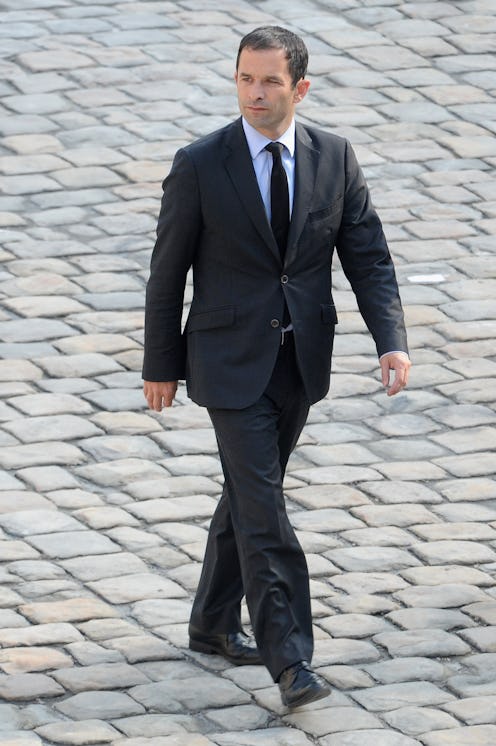News
Meet Benoît Hamon, France's Bernie Sanders

A cursory study of political history shows that political trends come in waves. From the bi-continental activism that took place in Europe and the United States in the 1960s and '70s to the rise of far-right populist movements on both sides of the pond in 2016, there seems to be a correlation between what happens in the U.S. and what happens in the EU. With France's Socialist Party's nominee, it appears that the rise of seemingly utopian ideas is also being shared. Some are referring to socialist presidential nominee Benoît Hamon as France's Bernie Sanders, and when looking at his ambitious universal income platform and the division his candidacy has stirred among his party, it's easy to see why.
Hamon is a sprightly 49 to Sanders' 75, and at 5'4" stands quite a bit shorter than the gangly Brooklynite-turned-Vermonter, but when it comes to their historical and current stances, the similarities add up. Hamon served in ministerial positions in President François Hollande's administration, but resigned from his post as education minister because he believed the president had drifted too close to the center to satisfy the Socialist Party's ideals. When Hamon won the Socialist Party's primary in January, he achieved what Sanders aimed for but didn't quite reach — winning the primary of a party he was not active in (though it was one that he had formerly worked for).
The Sanders comparisons don't end there — whereas Sanders, the self-proclaimed "Democratic Socialist," ran on a platform of free college for all, Hamon inspired the leftist base of the French socialist party with his plan for a universal basic income of 750 euros (roughly $803) per month for all adults over the age of 18. Their idealistic platforms are also united by an outside political force — the rise of right-wing populist candidates like Donald Trump in the U.S. and Marine le Pen in France.
Unfortunately, both Sanders' and Hamon's campaigns share another less-than-positive trait: division among their bases as they face centrist-liberal opponents. In France, Hamon's Hillary Clinton-like opponent is Emmanuel Macron, an independent who's been endorsed by Hamon's primary challenger and former PM Manuel Valls. Like Clinton, Macron appears slated to win the election against his populist opponent, leaving the country's left-leaning electorate as divided as Americans were over the Sanders-Clinton primary race.
While it's overly-simplistic to try to view the French presidential elections through the lens of the two-party American system, there are enough similarities to give pundits on both sides of the pond pause. Hamon, like Sanders, probably won't win, but his candidacy and shocking nomination by the party he forsake in 2014 shows that Western leftists are resisting the centrist liberalism of the likes of Clinton and Macron, along with the heavy right-wing platforms of Trump and le Pen.